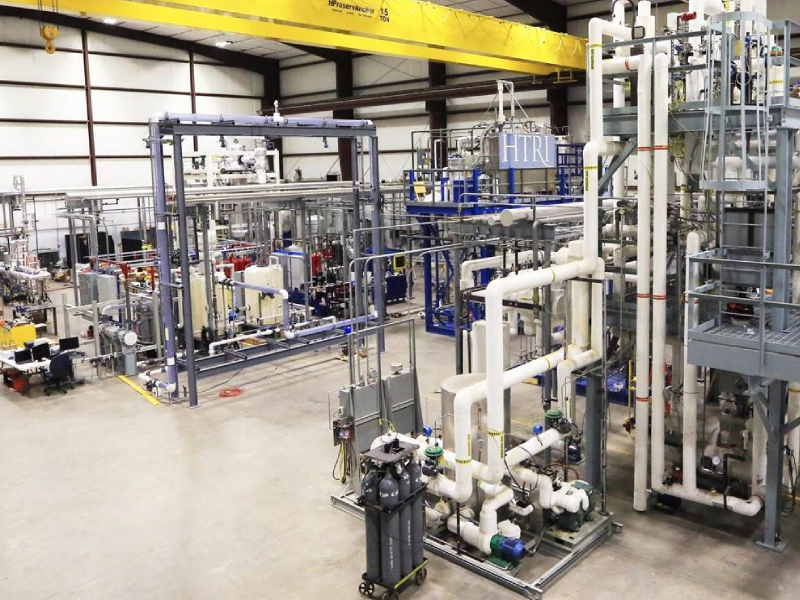HTRI Course in Mumbai offers in-depth training on one of the most advanced tools used by thermal engineers for designing, simulating, and analyzing heat exchangers. HTRI software supports accurate thermal calculations, including heat transfer, pressure drop, and fouling analysis, ensuring compliance with industry standards and optimal system performance.
By enrolling in the HTRI Course in Mumbai, engineers gain practical skills in using the software’s powerful design, simulation, and optimization features. This expertise helps improve energy efficiency, minimize operational costs, and meet international performance benchmarks. With increasing demand for sustainable and efficient thermal systems, HTRI-trained professionals are highly valued in the energy, petrochemical, and industrial sectors.
Field Scope & Importance
- Precise Thermal Design & Simulation
- Energy Efficiency & Cost Reduction
- Fouling & Scaling Prevention
- Compliance with Industry Standards
- Advanced Process Simulation
- High Demand in Energy & Industrial Sectors
Working Steps for HTRI

Input Process Data
Enter fluid properties, flow rates, temperatures, and pressure conditions to define system parameters.

Select Equipment Type
Choose the appropriate heat exchanger type (e.g., shell-and-tube) based on process requirements.

Run Thermal Design
Use HTRI’s algorithms to simulate thermal performance and calculate heat transfer coefficients.

Analyze & Optimize
Review performance outputs, identify bottlenecks, and refine design for efficiency and compliance.
Curriculum
- Shell & Tubulars
- Shell & Tubulars Advanced Technologies
- Vibration Analysis and HTRI / TEMA Case Studies
- Air Cooled & Compact Heat Exchangers
- HTRI Thermal Design Aspects Condensers & Reboilers
Core Function of HTRI

ASME Code Adherence
Train on designing heat exchangers in line with ASME Section VIII and TEMA standards. Ensure all calculations and designs meet global mechanical and thermal compliance requirements.

Pressure Drop & Flow Compliance
Learn to maintain allowable pressure drop limits across process systems. Ensure compliance with operational safety and performance benchmarks.

Fouling Factors & Safety Margins
Understand how to apply standard fouling factors and safety margins in thermal design. Design systems that anticipate long-term reliability and efficiency loss.

Material Selection Standards
Choose materials that meet mechanical codes and process compatibility standards. Avoid design failures due to corrosion, stress, or temperature-related issues.

Energy Regulations Alignment
Optimize thermal systems to meet industry-specific energy use regulations. Design exchangers that support sustainability and carbon reduction goals.

Validation & Documentation for Audits
Generate detailed reports for thermal validation, inspection, and certification. Support design reviews, client approvals, and third-party compliance audits.
Looking to excel in thermal design for industrial applications? An HTRI Course in Mumbai at Trinkets Institute of Technology (TIT) empowers you to master HTRI, the leading software for designing and analyzing heat exchangers. Mumbai, a global hub for oil, gas, and petrochemical industries, is the ideal location for an HTRI Course in Mumbai. This article explains why TIT’s course is a career-defining opportunity, what skills you’ll gain, and how it complements specialized training like the E3D Piping Course.
Why Choose an HTRI Course in Mumbai?
Driving Thermal Design Excellence
HTRI (Heat Transfer Research, Inc.) software is critical for designing efficient, safe heat exchangers used in refineries, chemical plants, and power generation. Mumbai’s industrial giants, such as Reliance Industries and BPCL, rely on engineers skilled in HTRI to optimize their thermal performance. TIT’s HTRI Course in Mumbai equips you to design, rate, and simulate heat exchangers, ensuring you meet stringent industry standards and stand out in a competitive job market.
Mumbai’s Industrial Advantage
Mumbai’s proximity to major refineries and EPC firms makes it a prime spot for an HTRI Course in Mumbai. TIT’s Mulund campus connects you to this vibrant ecosystem, providing real-world exposure and access to top-tier job opportunities.
What You’ll Learn in TIT’s HTRI Course
Focused Skill Development
TIT’s HTRI Course in Mumbai offers a concise, industry-aligned curriculum over 1-2 months, with flexible weekday, weekend, or online batches. You’ll master:
Designing shell-and-tube and plate heat exchangers
Performing thermal rating and vibration analysis
Optimizing heat transfer with HTRI Xchanger Suite
Ensuring compliance with ASME and TEMA standards
Generating detailed design reports for project execution
Through practical projects, like designing a heat exchanger for a refinery, you’ll build hands-on expertise. The course pairs well with TIT’s E3D Piping Course, enabling you to integrate thermal designs with piping layouts for comprehensive plant design.
Practical Application Focus
With small batches of 7-10 students, TIT ensures personalized guidance. You’ll work on industry-relevant simulations, learning to optimize heat exchanger performance and address real-world challenges like fouling and pressure drops.
Why TIT is the Best Choice
Expert Faculty and Certification
Established in 2011 and ISO 9001:2015 certified, TIT delivers top-tier training. Our HTRI Course in Mumbai is led by industry experts with extensive experience in thermal design. You’ll earn HTRI-authorized certificates, recognized by global employers like TechnipFMC, enhancing your professional credibility.
Affordable with Proven Placements
TIT keeps fees low to ensure accessibility. Our placement cell boasts an 80% success rate, with alumni like Shubham Patil (Tata Consulting Engineers, ₹6 lakhs/year) and Mahesh Gosavi (Tata Consulting Engineers, ₹7.2 lakhs/year). We offer resume-building, mock interviews, and direct connections to top firms.
Career Opportunities
An HTRI Course in Mumbai unlocks roles like heat exchanger designer, thermal engineer, or process design specialist. Starting salaries range from ₹4-6 lakhs annually, with experienced professionals earning ₹10 lakhs or more. Mumbai’s oil and gas sector, driven by projects like refinery expansions, ensures strong demand for HTRI expertise.
Why Choose TIT in Mumbai?
TIT’s HTRI Course in Mumbai is a career catalyst, blending practical training, expert instruction, and robust placement support. Located in Mulund, with online options, TIT offers flexibility and access to Mumbai’s thriving job market.
Start Your Journey Now
Don’t miss your chance to shine. An HTRI Course in Mumbai at TIT equips you to design efficient thermal systems for global industries. Enroll today to master HTRI and launch a rewarding career in engineering excellence.


